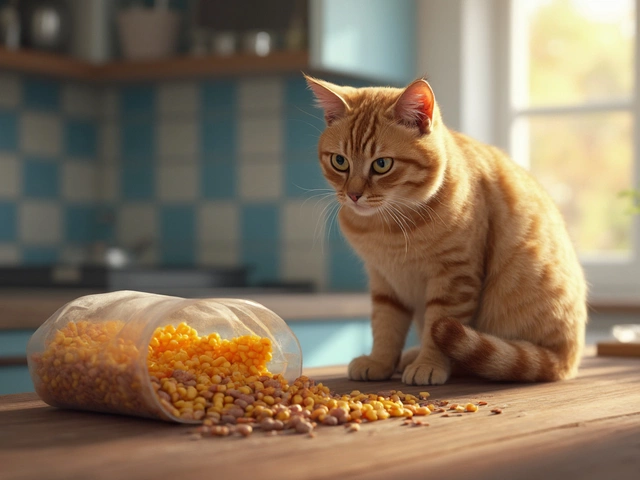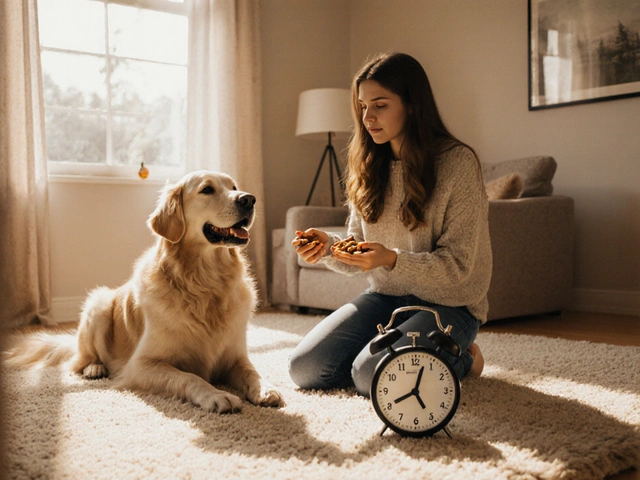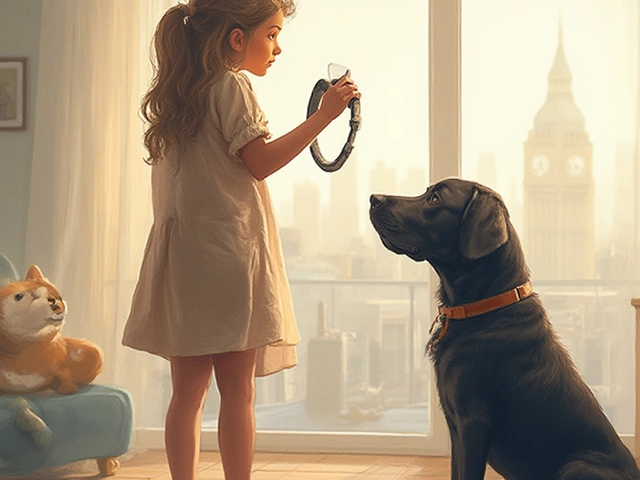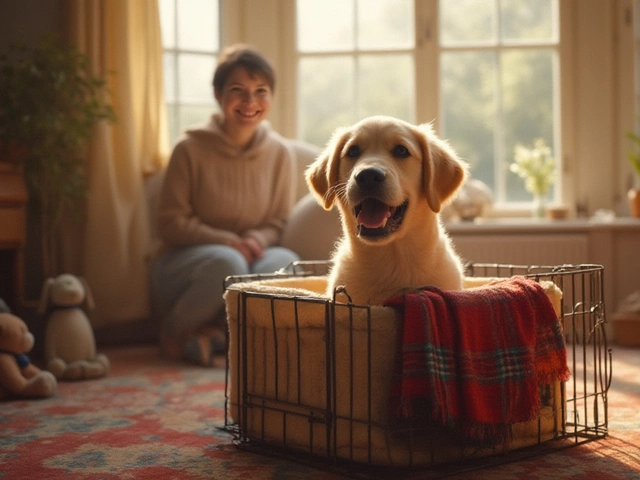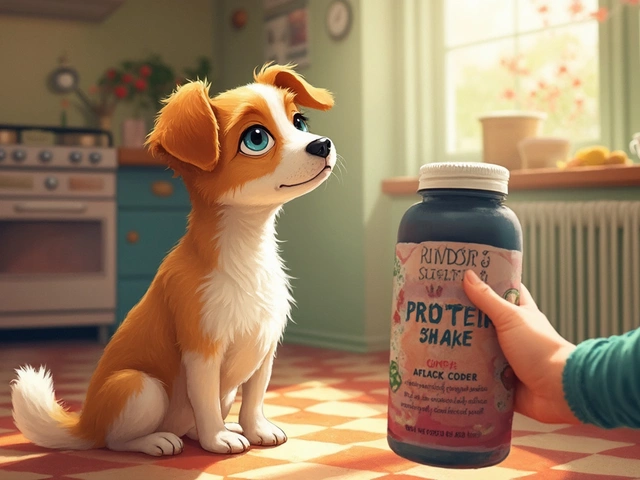Ever wondered what might happen if you skip vaccinating your pets? It's a big decision and could have more impact than you'd think. Vaccines do more than just protect your pets; they create a safe bubble for your community too. You wouldn't want your dog catching a deadly virus like parvovirus or your cat coming down with feline leukemia, right? These shots are crucial defenses against some serious illnesses.
It's not all about doom and gloom, though. There's a lot you can do to make sure your pet gets the best care, and understanding vaccines is a key piece of the puzzle. If you've ever felt overwhelmed by the list of shots your vet mentions, you're not alone. But stick around; we’re here to break it down for you and clear up some common misunderstandings.
- The Risks of Skipping Vaccines
- Common Vaccinations and Their Importance
- Myths and Misconceptions
- How to Ensure Your Pet's Well-being
The Risks of Skipping Vaccines
Deciding not to vaccinate your pets might seem like a harmless choice, but it carries several hidden dangers. First off, it exposes your furry friends to severe health threats. Regular shots keep them safe from deadly diseases like rabies, parvovirus, and feline leukemia. These aren’t just minor issues; they can be life-threatening and incredibly tough to treat if left unchecked.
Impact on Pets' Health
When it comes to specific diseases, parvovirus is a notorious threat for dogs. It can hit hard and fast, leaving your pup weak and suffering from severe dehydration. And it's highly contagious, spreading like wildfire in places with lots of dogs, like parks or kennels. For cats, missing vaccines can mean exposure to feline distemper or respiratory infections, which can quickly turn into a nightmare.
Community and Human Risks
It's not just about the pets either. When your pets skip their vaccines, there's also a risk to humans. Rabies, for example, is a zoonotic disease—meaning it can pass from pets to humans. It's a rare but often fatal disease once symptoms appear. Ensuring pets receive their vaccines is crucial for your safety and public health.
Financial Implications
Think of the financial side too. Treating diseases like these can end up draining your wallet. Vet bills for illnesses prevented by routine vaccines often skyrocket quickly. Vaccinations, on the other hand, are a budget-friendly way to ensure long-term pets health.
Stats to Consider
If you're into numbers, check this out: In a survey, over 90% of veterinarians agreed that regular vaccinations significantly reduce the risk of serious illness in pets, and the same percentage reported seeing dramatic improvements in life expectancy when pets stayed up to date with their shots.
Common Vaccinations and Their Importance
When it comes to keeping your pets in top shape, vaccinations play a pretty big role. These shots are like armor against some gnarly diseases that could not only affect your pet’s health but also yours. Let's dive into some of the common vaccinations that are essential for your furry companions.
For Dogs
Every dog deserves a happy and healthy life. Here’s a rundown of some key vaccines for pets you should know about:
- Rabies: This one's a must. It’s not only a legal requirement in many places, but rabies can be deadly and is transmissible to humans.
- Distemper: Highly contagious and impacts the respiratory, gastrointestinal, and central nervous systems.
- Parvovirus: This nasty virus hits a dog’s intestines, commonly causing severe vomiting and diarrhea.
- Adenovirus (CAV-1 and CAV-2): Protects against hepatitis and respiratory issues.
For Cats
Cats might seem like low maintenance, but when it comes to health, vaccinations are crucial.
- Feline Herpesvirus and Calicivirus: These are part of the core vaccines protecting against infectious viruses causing severe respiratory issues.
- Feline Panleukopenia (FPV): Often referred to as 'feline distemper,' it's highly contagious and deadly without a vaccine.
- Rabies: Yes, even cats need this one. It's a safety net that keeps them and human communities safe.
Most vets recommend these shots during the early stages of your pet’s life, usually spaced over several weeks or months. Don’t forget, booster shots are crucial to maintain immunity.
For an extra perspective, note that a significant number of veterinarians report a decrease in disease incidence in regularly vaccinated pets. Keeping up with vaccines not only saves you from expensive treatments but also prolongs your pet's life.
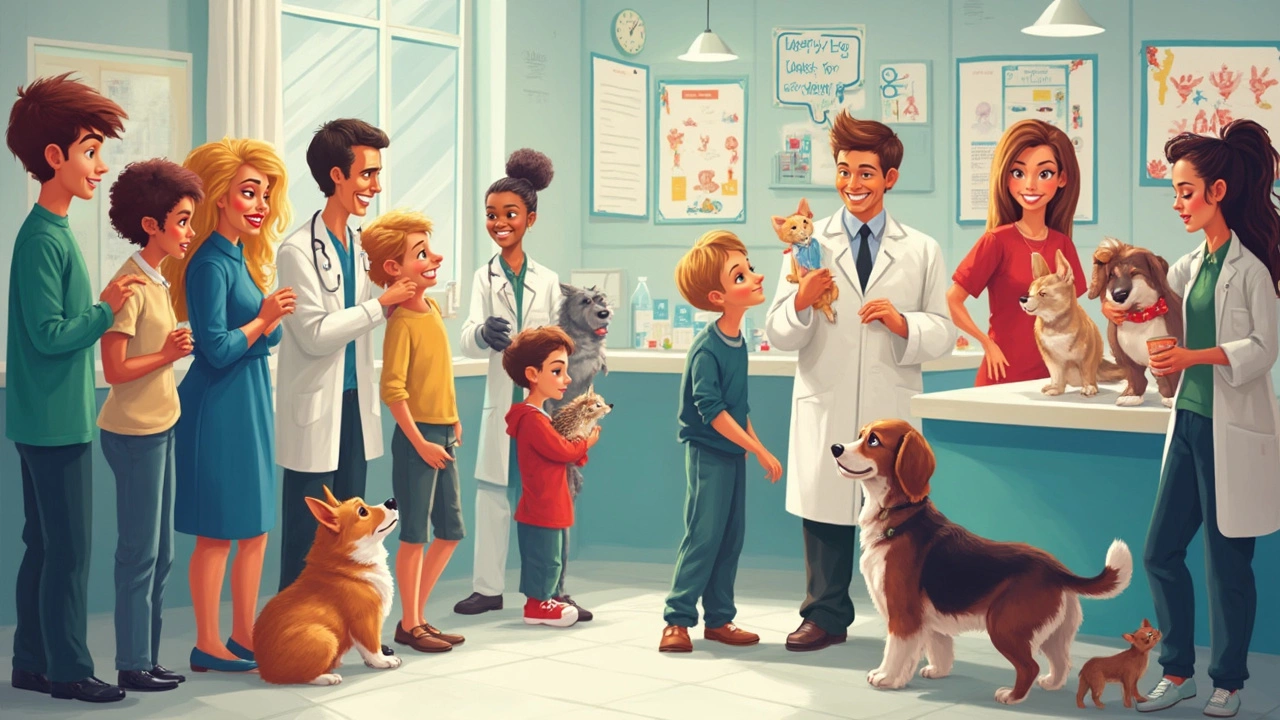
Myths and Misconceptions
There's a ton of information out there about pet vaccinations, and not all of it is accurate. Let's debunk some common myths that might be causing unnecessary worry or confusion.
Myth 1: Vaccinations Can Cause More Harm Than Good
Some folks think that vaccines can make pets sick or lead to serious side effects. The truth is, while mild reactions like slight fever or soreness can happen, the risk of significant side effects is extremely low. The benefits far outweigh the risks. Vaccines protect your pet from diseases that are much more dangerous than a temporary discomfort.
Myth 2: Indoor Pets Don’t Need Vaccines
Imagine thinking your indoor cat is safe forever from diseases like rabies. Sounds nice, but it's not entirely true. Even pets that stay indoors can be exposed to pathogens. A bat could sneak in, or you could bring something back on your shoes. Vaccines like rabies are crucial for all pets. Remember, some are even required by law.
Myth 3: Once Vaccinated, Pets are Protected for Life
One-and-done isn't how vaccines work. Protection fades over time, and your pet needs booster shots to stay safe. Your vet will usually set up a specific schedule tailored for your furry friend, so keeping those appointments is key.
Vaccines for pets are not just a one-time event but an ongoing part of responsible pet care. Understanding the truth behind these misconceptions helps you make informed choices, ensuring your pet's long and healthy life.
How to Ensure Your Pet's Well-being
Looking after your pet's health isn't just about boasting a glossy coat or wagging tail—it's about creating a lifestyle that keeps them safe and sound, free from diseases.
Regular Vet Visits
First off, make visiting the vet a routine, not just a reaction. Regular check-ups can catch issues before they become serious. Vets help you navigate the best treatments and vaccines to protect against common threats like rabies. Don't skip these; they're lifesavers! A straightforward rule? Twice a year for most healthy adult pets and more often for younger or older ones. It's like how you wouldn't skip your annual health check-up.
A Balanced Diet
Feeding your pet a balanced diet is essentially the first step towards preventing illness. Choose food that's appropriate for their age and breed. Whether it's kibble, canned, or homemade, make sure it's packed with necessary nutrients. Consult your vet for advice tailored to your pet's specific needs.
Exercise and Mental Stimulation
Do not underestimate the power of a good walk or a challenging toy puzzle. Keeping your pet physically active and mentally engaged is just as key as anything else. This not only helps avoid obesity-related issues but also keeps their mind sharp. Cats, dogs, even small rodents benefit from exercise!
Preventative Care
Prevention is better than cure. Beyond vaccinations, consider flea, tick, and heartworm prevention. These pesky critters can bring all sorts of trouble. Products are available to keep your pets pest-free. It's easier to prevent than deal with an infestation.
"An ounce of prevention is worth a pound of cure." - Benjamin Franklin. This quote holds true, especially when it comes to pet care.
Pet Insurance
Finally, think about pet insurance. Vet bills can add up, especially if your pet faces an unexpected illness. Insurance can be a real financial safety net.
- Consider multiple policy options.
- Choose what's right for your pet's age and breed.
Pet insurance can ease the burden if something unexpected happens.
All in all, your pet's health should be as crucial as any other family member's. With these steps, you're not just giving your pets better lives; you're potentially extending their time with you too.
| Pet Care Aspect | Frequency |
|---|---|
| Vet Visits | Twice a year |
| Exercise | Daily |
| Balanced Diet | Constant |



